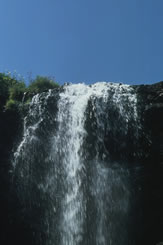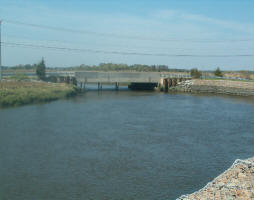 UN report indicates climate change as key challenge for Southern and Eastern Mediterranean Cities: "The State of Arab Cities 2012 - Challenges of Urban Transition"
UN report indicates climate change as key challenge for Southern and Eastern Mediterranean Cities: "The State of Arab Cities 2012 - Challenges of Urban Transition"
The recently published UN-HABITAT State of Arab Cities 2012 indicates climate change induced extreme weather and sea level rise as key challenges for Southern and Eastern Mediterranean Cities. These rising threats – the document says - will have significant and largely negative impacts on cities in the Arab world by displacing farmers and increasing urbanization pressures, increasing food imports, decreasing the availability of water in a region that is already water stressed, increasing the likelihood of flooding in coastal areas where most of the Arab world lives and increasing energy demands for cooling and desalination.
For Mashreq, the UN-HABITAT report indicates that climate change would cost to the countries 1 to 7 per cent of GDP. For Jordan, it would cost 1 to 2 per cent of its GDP, Lebanon 2 to 5 per cent, oPT 2 to 5 per cent and Syria 4 to 7 per cent. These pressures will raise the cost of living in cities and eventually surpass the ability of governments in the region to subsidize costs. Climate change has the potential – UN-HABITAT states - to destabilize the region increasing competition for scarce resources, intensifying food security concerns, deepening poverty and social instability and catalyzing environmental migration.
According to the Intergovernmental Panel on Climate Change (IPCC), the Middle East and North Africa will become hotter and drier by the end of the century. Models predict that by 2050 Mashreq will be 2.5 to 3.7ºC hotter in the summer and 2.0 to 3.1ºC hotter in the winter. In Maghreb, climate change will shift the Westerly winds, resulting in a 12 per cent reduction in median annual precipitation by 2030.
Climate change induced temperature increases and precipitation declines are projected to increase water scarcity and the frequency of severe droughts and also decrease agricultural productivity by 10 to 40 per cent, potentially leading to further poverty induced rural to urban migration. Desertification and the associated threats of future water and food insecurity for its growing urban populations are among the key defining problems of the region - the UN-HABITAT publication says. In addition, most of the region’s major cities, economic centres and transportation hubs activity are in low-lying, coastal areas. A rise in sea level could be disastrous for many of the region’s densely populated coastal cities.
Together, these two trends will increase the frequency and severity of extreme weather, particularly severe drought. Models also predict a rise of 0.1 to 0.3 metres in sea level by 2050, which will increase salt water intrusion into important coastal aquifers, including in Gaza.
PPRD South is organizing a regional workshop on Urban Resilience in October 2012. The workshop will discuss initiatives and good practices from the Euro-Mediterranean region in reducing urban risks as well as methods for assessing urban risk and vulnerability and measures for urban land use planning and contingency planning for major natural hazards in cities.
--
Download the UN-HABITAT State of Arab Cities 2012 Report
| Contact information |
Alessandro Candeloro / © United Nations Human Settlements Programme (UN-Habitat) 2012 All rights reserved P.O. Box 30030 Nairobi 00100, Kenya
(email: habitat.publications@unhabitat.org ) Phone: +254 20 7623 120 Fax: +254 20 7623 904 |
|---|---|
| News type | Inbrief |
| File link |
http://www.preventionweb.net/files/27581_stateofarabcitiesreport.pdf |
| File link local |
|
| Source of information | euromedcp / © United Nations Human Settlements Programme (UN-Habitat) 2012 |
| Keyword(s) | climate change |
| Subject(s) | ENERGY , FINANCE-ECONOMY , HEALTH - HYGIENE - PATHOGENIC MICROORGANISM , INDUSTRY , INFRASTRUCTURES , METHTODOLOGY - STATISTICS - DECISION AID , RISKS AND CLIMATOLOGY , TOURISM - SPORT - HOBBIES |
| Relation | http://www.semide.net/topics/climatechange |
| Geographical coverage | n/a |
| News date | 10/10/2012 |
| Working language(s) | ENGLISH |
 you are not logged in
you are not logged in





